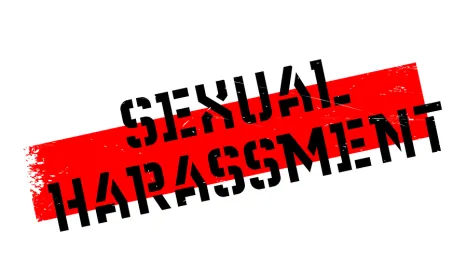In the New Year, two states – New Jersey and Illinois – have proposed legislation requiring restaurants to adopt a sexual harassment training policy and provide anti-sexual harassment training to employees. While it remains to be seen whether these bills will become law, attempts to target and reform working conditions in the hospitality industry are nonetheless noteworthy, particularly given that unlike New York and California, neither New Jersey nor Illinois have enacted broad legislation requiring private sector employers, regardless of occupation, to provide sexual harassment training to staff.
New Jersey Bill (A4831)
New Jersey Bill A4831 requires restaurants that employ 15 or more employees to provide sexual harassment training to new employees within 90 days of employment and every five years thereafter. This training requirement would go into effect within 90 days of the law’s effective date.
As to the content of the training, the bill specifies that supervisors and supervisees receive tailored content relevant to their positions/roles that include topics “specific to the restaurant industry” in an “interactive” format, including practical examples and instruction on filing a sexual harassment complaint. Implicitly recognizing the diverse nature of the hospitality workforce, the bill requires that such training must be offered in English and Spanish.
The bill would also require restaurants to adopt and distribute sexual harassment policies to employees (either as part of an employee handbook or as a standalone policy), though it does not prescribe the contents of such policies.
While the bill cautions that compliance with the act would not “insulate the employer from liability for sexual harassment of any current or former employee,” strict compliance is advisable as the bill creates fines for non-compliance – i.e., up to $500 for the first violation and $1,000 for each subsequent violation.
Illinois Bill 3351
Illinois Bill 3351, the proposed Restaurant Anti-Harassment Act, is broader than the proposed New Jersey legislation in that it applies to all restaurants regardless of the number of employees on staff. Like its New Jersey analogue, this bill requires restaurants to adopt a sexual harassment policy and provide training to all employees.
The sexual harassment policy must contain the following elements:
(1) a prohibition on sexual harassment;
(2) the definition of sexual harassment under Illinois and federal law;
(3) examples of prohibited conduct that would constitute unlawful sexual harassment;
(4) the internal complaint process of the employer available to the employee;
(5) the legal remedies and complaint process through the Illinois Department of Human Rights;
(6) a prohibition on retaliation for reporting sexual harassment allegations; and
(7) a requirement that all employees participate in sexual harassment training.
Like New Jersey’s bill, the Illinois bill requires separate training for employees and for supervisors/managers, and delineates the topics to be covered in each training. Specifically, the employee training must include: (i) the definition of sexual harassment and its various forms; (ii) an explanation of the harmful impact sexual harassment can have on victims, businesses, and those who harass; (iii) how to recognize conduct that is appropriate, and that is not appropriate, for work; (iv) when and how to report sexual harassment. The supervisor training must include the aforementioned topics in addition to: (i) an explanation of employer and manager liability for reporting and addressing sexual harassment, (ii) instruction on how to create a harassment-free culture in the workplace, and an (iii) explanation of how to investigate sexual harassment claims in the workplace. In addition to these requirements, the training programs must be offered in English and Spanish, be specific to the restaurant or hospitality industry and include restaurant or hospitality related activities, images, or videos, and be “created and guided by an instructional design model and processes that follow generally accepted practices of the training and education industry.”
If enacted, employees would need to receive training within 90 days after the effective date of the act or within 30 days of employment and every 2 years thereafter.
Like New Jersey, the Illinois bill contemplates a $500 fine for the first violation and a $1,000 fine for each subsequent violation.
Recommendation
Restaurants should carefully track the progress of these bills and be on the lookout for similar legislative efforts in other states. Given that a number of states, including New York and California, already require all private employers (of a particular size) to provide sexual harassment training, restaurants operating in Illinois and New Jersey may want to move towards implementing a sexual harassment policy and training program sooner than later.




 />i
/>i

